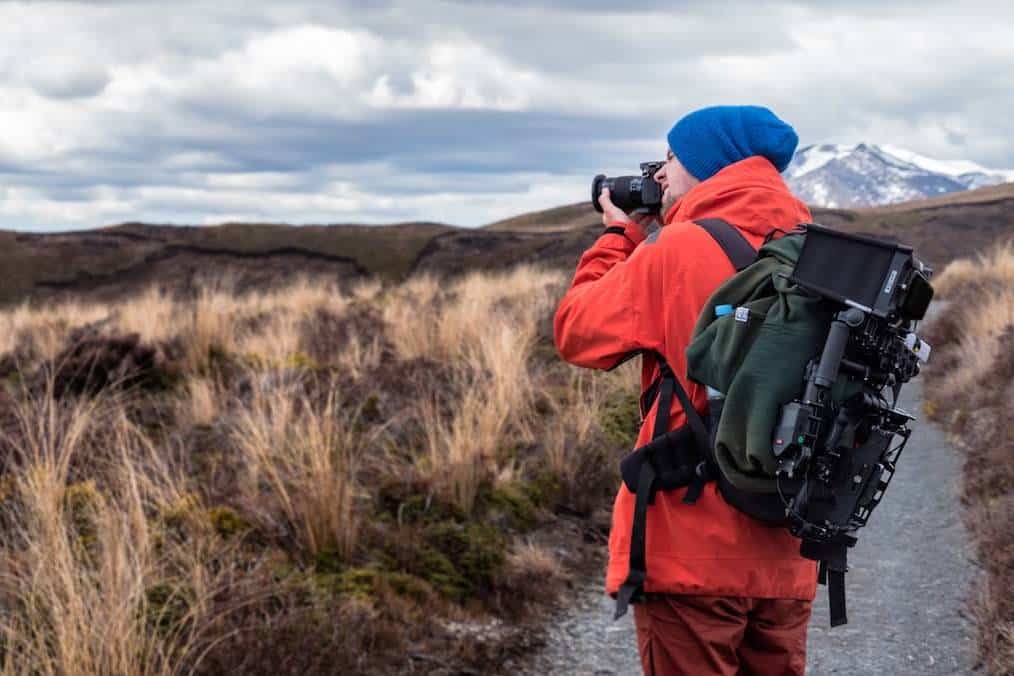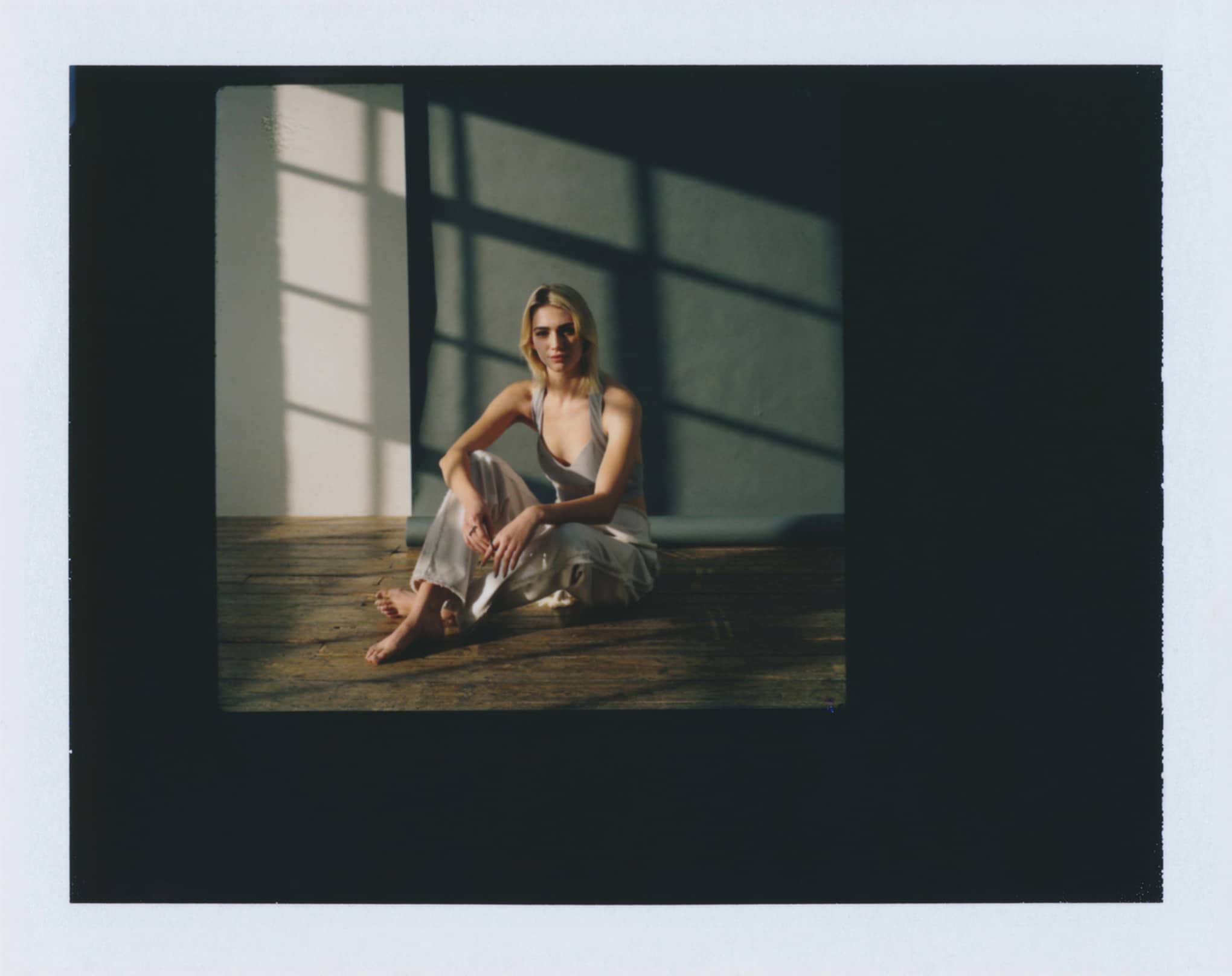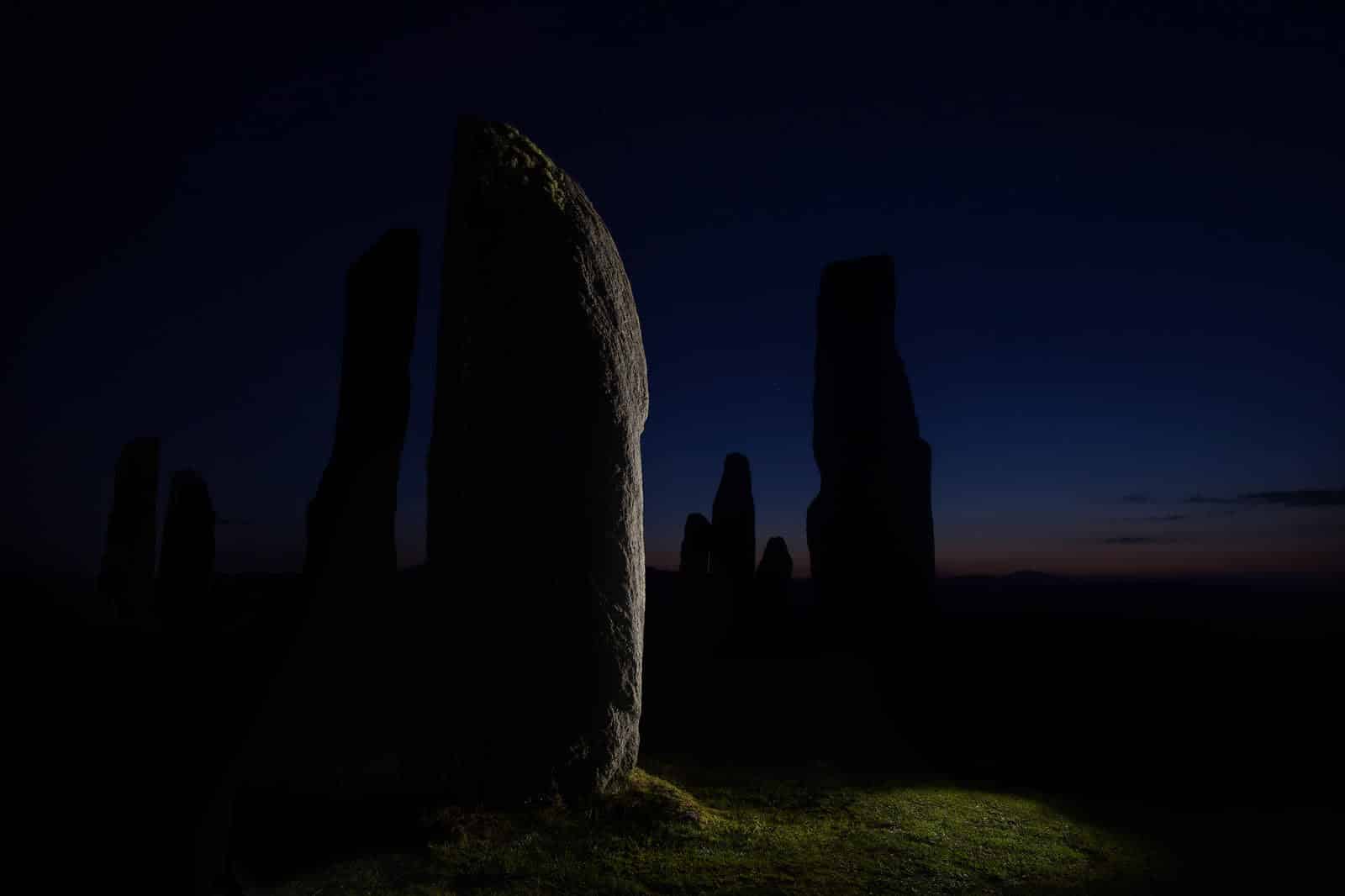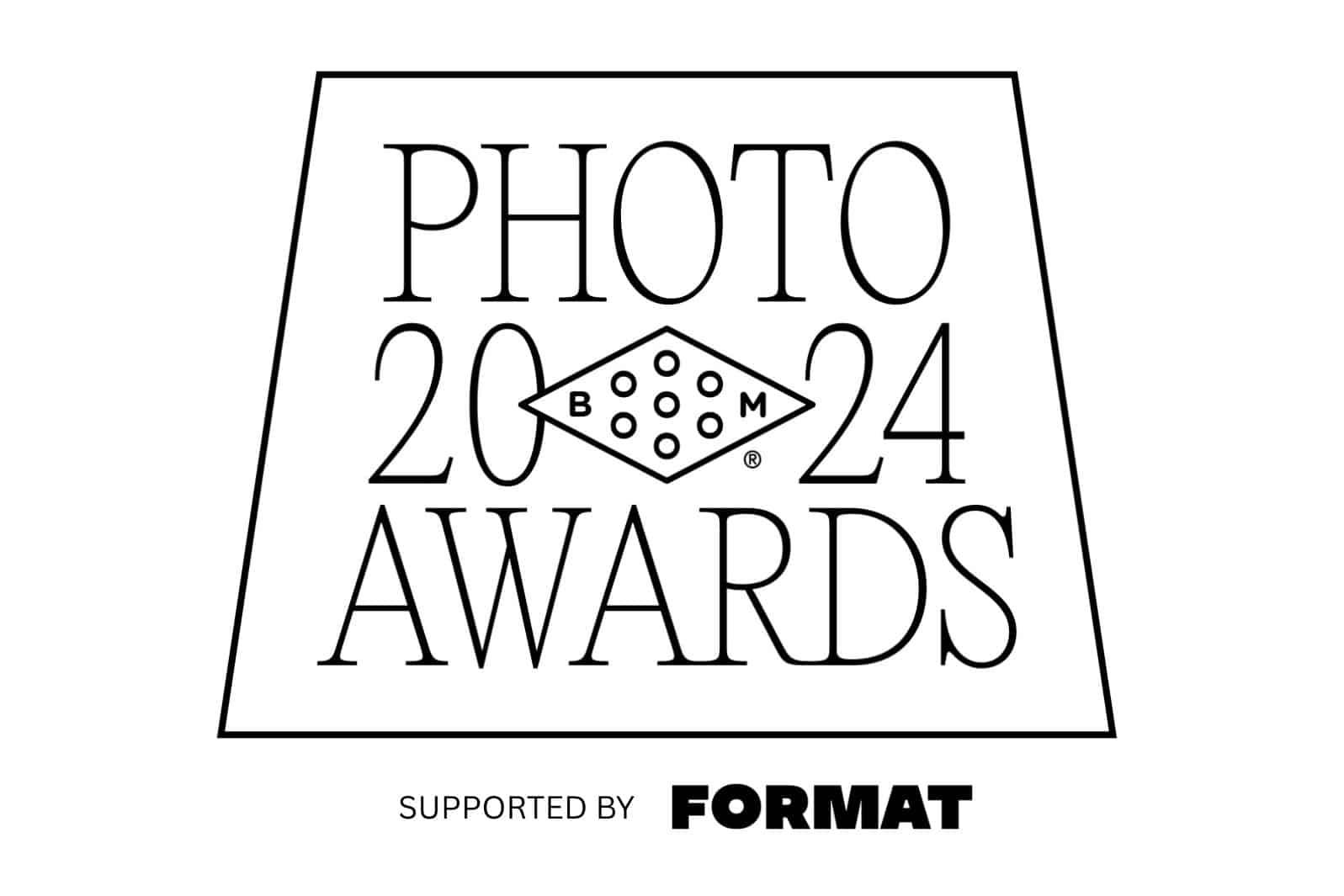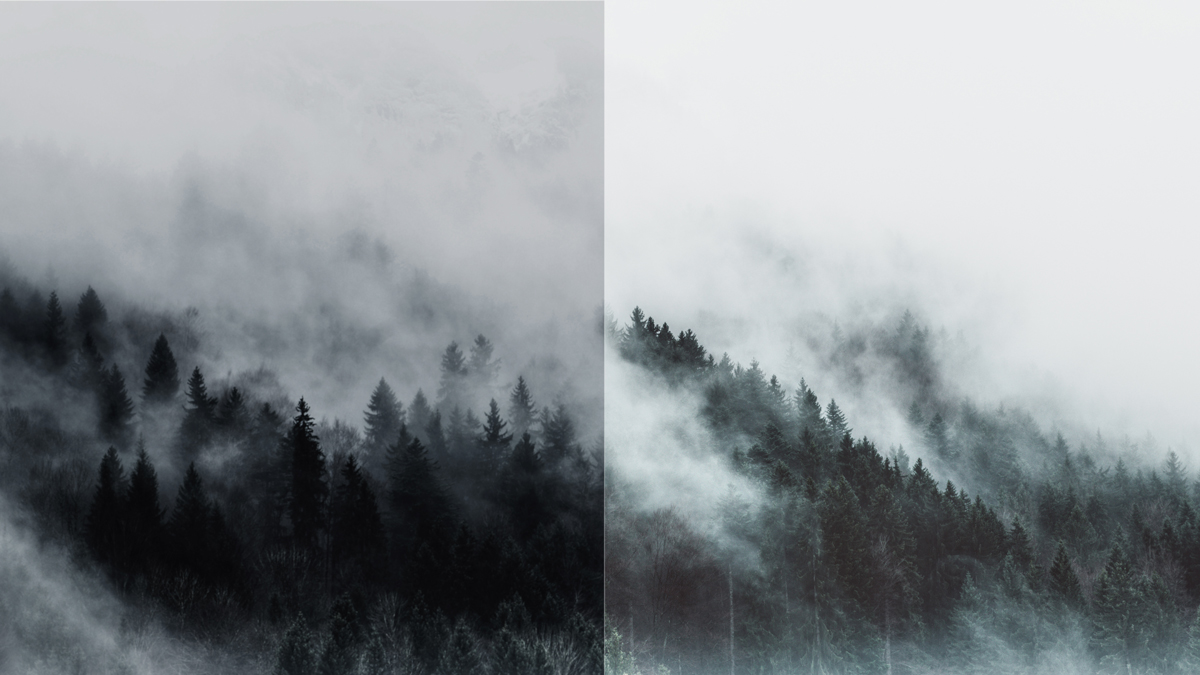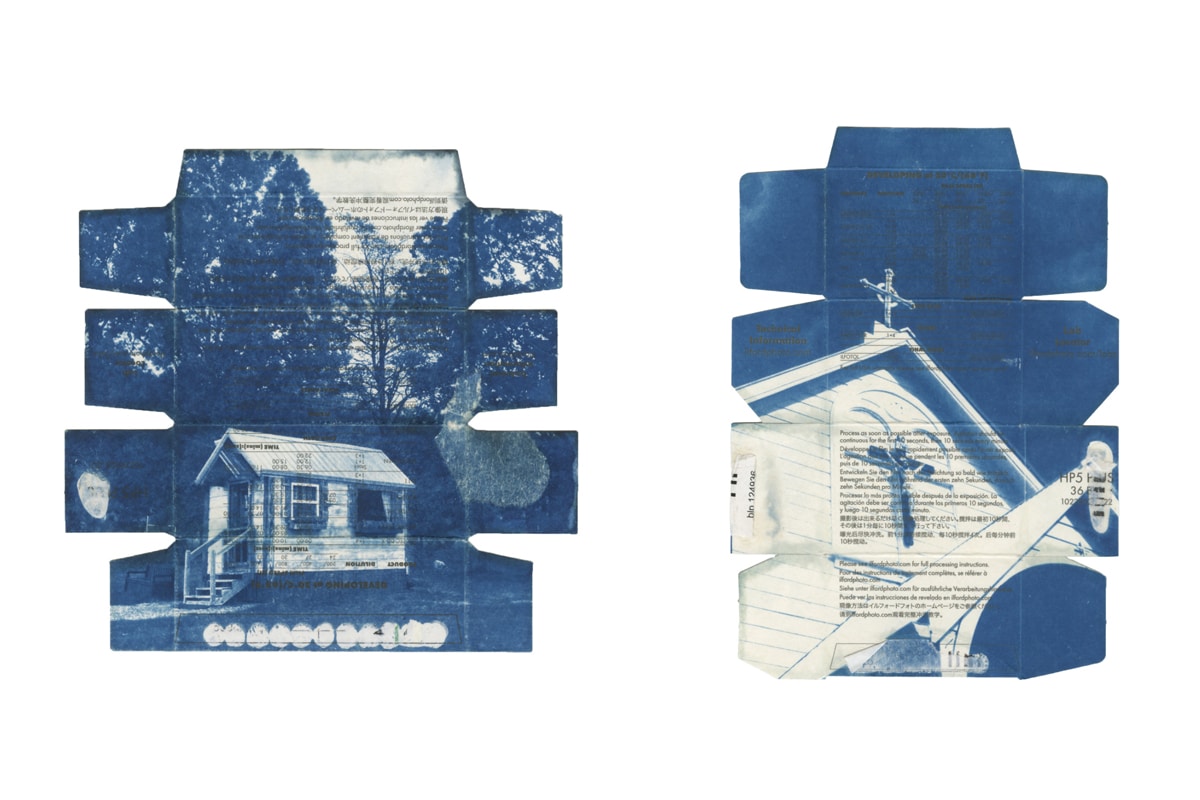After jumping back and forth between all the different types of photography, it turns out that it’s always been the dazzling city night, lush mountaintops, and desert vistas that really get you going. So, after you’ve got your cameras and lenses in order, it’s time to figure out the landscape photography accessories that will really take your work to the next level.
Once you’ve got the right gear, you’ll be able to turn out truly stunning shots that will add polish to your online landscape photography portfolio, help you sell your landscape photography online—and even get you a ton of Instagram followers.
Here’s our guide to the must-have landscape photography accessories that every adventurous shooter needs in their kit:
Protect Yourself Against the Elements
Shooting in bad weather—like rainstorms and fog, mist, or haze—can add more intrigue and mystery to your photos than your average sunny setting. Here are some best practices and landscape photography accessories to keep your equipment safe:
Rain Covers
Humans have rain jackets, cameras have rain covers. If you’re on a budget, you can even use a plastic bag and a rubber band. Here are some tips for shooting in high humidity.
Waterproof Camera Backpack or Holster
A great camera bag will keep your gear safe and dry. Here are some of the best bags available. Holsters protect your camera and also offer you easy access while you’re shooting.
Lens Hood
Accidents happen, and this small accessory can make a big difference in minimizing the damages. It will protect your camera lens in the event of a drop or bump. Lens hoods are also great for minimizing glare and flare.
Camera Cleaning Kit
You never want to let a fingerprint ruin an otherwise pristine snowy shot. There’s no point getting all these great camera accessories if you can’t keep your camera in good enough condition to get your dream shots! Learn how to safely clean your camera, and check out some of the best camera cleaning kits available. This will get rid of any dust, dirt, sand, and smudges acquired during your adventures in landscape photography.
Extra Battery and SD Memory Card
You also want to protect yourself from running out of room on your camera! You may be traveling long distances to get that perfect photo, and the last thing you want is to run out of juice or memory while you’re out on a shoot.
Photography Gloves
It’s cold and snowy and your fingers are numb. You keep taking your hands out of your gloves to take your photos, but you don’t want to get frostbite. That’s why there’s photography gloves to help you carry on shooting.
Safe Travel Gear
If you are traveling long distances on your own, you’ll want to keep your most important piece of equipment safe: you! Don’t forget to stay hydrated, and carry an emergency light plus extra batteries for your phone. If you are traveling outside the country or in areas that are less safe, make sure to protect yourself against theft. Better safe than sorry.
A Buddy
Traveling with a buddy is great not only for company but also emergencies. You can use your friend as a figure in your photos to show the scale of that enormous cave or wide horizon lines you’re shooting. Try Meetup or photographer Facebook groups to find fellow photographers or perhaps an eager novice you’d like to take under your wing.
Buy a Landscape Tripod
These camera accessories ensure stability so that once you’ve found that perfect angle, you can rest assured your landscapes will come out crisp along the edges.
When it comes to picking out the best landscape or travel tripod, you’ll want to look for a good, stable tripod that has the weight to nail those long exposures on windy days. Keep in mind that a lightweight carbon fiber tripod will be easy to carry for traveling.
Snap Pics When You Please With A Remote Shutter
Remote shutter releases are a great piece of equipment that not only helps you keep your hands off the camera to reduce shake, but also lets you do super-cool long exposures past 30 seconds, which is the maximum most cameras can do on their own. They’re great for astrophotography or photographs of starry skyscapes.
Although the focus is on your landscape photography, you may want to make a cameo in your photographs to show a sense of scale or just to take a more personal photo for your friends. Using a wireless remote shutter release can help with this, too. Becoming a serious photographer doesn’t mean you can’t have fun and be a part of the photos once in a while.
Intervalometers are another great option similar to the remote shutters, but with extra features. Their most common use, however, are time lapses. Learn more about how to use intervalometers in this informative video.
Rock that Filter
Now that you’ve got everything to keep your gear safe and sound, let’s get to the fun part: landscape filters. Having the right camera accessories can push your regular old sunflower field into something truly spectacular. Try different filters for varying effects, whether it’s making clouds blur or pop out from the sky. These are the best filters for landscape photography:
Basic Filters
A UV filter is commonly used as a bodyguard for your camera lens and protection against the harmful UV rays from the sun.
Linear and Circular Polarizer Filters
Using linear and circular polarizer filters will calm down glare and make the colors much more vibrant. They’re also great if you want to take photos of fluffy cloudscapes or just include the bright blue sky in your shot. They also remove unwanted reflections and reduce contrast in a photo. Be cautious if you are using a wide angle lens because it can darken a part of the sky too much.
Neutral Density Filters
Neutral density filters act as an extension of your exposure time, adding blur to moving objects, whether it’s smooth waterfalls or people walking along a forest trail. With the right ND filter, you can extend the exposure time by 32 times. Here are some of the best ND filters and ND filter kits.
Graduated Neutral Density Filters
Graduated ND filters create a gradient that helps you balance the exposure of an image. More light is allowed to pass through one part of the lens, which helps neutralize the high contrast of a landscape photo like a horizon with an extremely bright sky and a dark rocky road. These work much better for a wide-angle lens. You can also create this effect digitally with Photoshop for much better control over the strength of the gradient.
Cooling and Warming Filters
These camera accessories change the white balance of a camera. You can also achieve the same effect in Photoshop.
Attach Some of these External Landscape Photography Accessories
Lens filters are a good start in refining your photos, but if you really want to take your landscape skills a step further, experiment with some trendy external camera attachments.
Photo Prisms
Photography is a light-based medium, and you can manipulate your subjects by distorting the way light enters your camera lens. Learn how to use a photo prism for landscape photography, whether it’s reflecting your subjects or bending light from the sides. Here’s a complete guide to lens distortion, from prisms to crystals and more. Once you understand the concept, you can try using your own items as camera accessories, like CDs and glasses.
Glass Balls
If you don’t have a 360 camera, this is the next best thing. Try adding a glass ball to your landscape photography accessories kit to create your own crystal ball world. Glass balls pull the environment around them into a sphere. A similar effect can be created by photographing a photo prism, or other interesting shapes of glass. Also known as a lens ball, there is no shortage of creative ways to use them in your photography, whether it’s shooting it from a lower angle or creating multiple reflections by putting one near water.
Use The Environment Around You as a Landscape Photography Accessory
When it comes to camera accessories, Mother Nature has got you covered. Here are a few ways to utilize your natural surroundings to make your landscape photos really pop:
Harness the Sun
You can use the direction of the sun and its flares as landscape photography accessories. Use a camera flash to draw out details when harsh shadows appear. Photographing campfires is another great way to experiment with light.
Find a Natural Frame or Prism
You can treat any translucent surface or natural feature you find as a photo prism and experiment with shooting through it. For example, try using tree branches to frame your composition or get closer to the ground and shoot in between blades of grass. Whatever you shoot through can add depth to your photo and make for a more unique capture. Here are some tips to get started with these DIY camera accessories. The same goes for glass balls. Puddles, morning dew and icicles all make for great reflective surfaces to shoot with. Learn how to use reflections in your landscape photography, whether they come from the natural environment or are man-made, like a wine glass. For inspiration, check out this landscape photo series, which uses a mirror and these five ways to use a plastic bag as a camera accessory, including turning it into a soft edge filter.
Download Some Landscape Photography Apps
As a landscape photographer, you are also an adventurer who will go off trail to get the photos less taken. Know exactly where you are with downloadable maps for offline use, and never get lost again. Some landscape photography apps can also tell you where your biggest light source, a.k.a. the sun will be at the time of your shoot, and even how long your shadow will be. Make sure to check out the full list of our favourite landscape photography apps!
More landscape photography career inspo:
10 Ways to Save Money as a Freelance Travel Photographer
How to Price Stock Photography
20 Travel Photography Portfolios From Around the World
